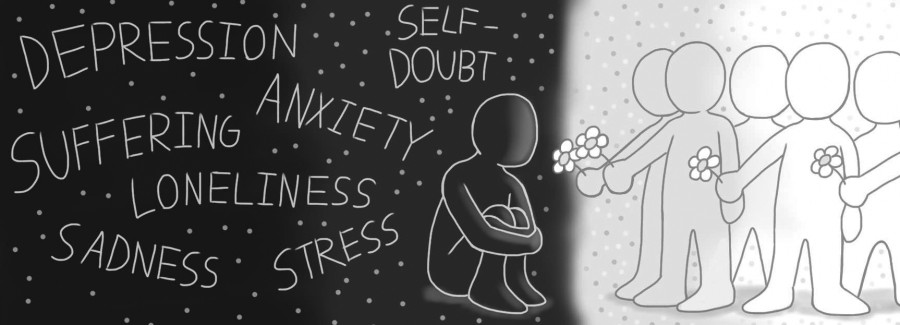We Need Proactive Mental Health Support
March 22, 2016
If you think it’s difficult to read an article about suicidal students, consider what it would be like to be one.
In light of recent tragedies, mental health awareness has become more of a hot topic at CHS. Students and staff have rallied together in organizations like Sources of Strength and National Honor Society, which have worked on projects to bring mental and emotional health to the forefront, voicing the struggle individuals have been facing alone.
But it’s time to make mental health support a proactive movement rather than a reactive one. It’s essential that CHS realize how important it is to provide adequate resources and support for its students before it’s too late.
CHS’ SOS took a huge step in the right direction by putting a new wave of enthusiasm into training teachers to be trusted sources of help for students in a crisis or suicidal students.
According to Art Department head Brendan Roddy, “part of the Sources of Strength Initiative is to train adults to be mentors and have them be recognized as people in the building to connect with.”
The program is extremely necessary, as it offers students the opportunity to receive mental health help on some level when they may be unable to outside of school. It also pushes CHS adults to take an active role in students’ mental health, remedying feelings of some that the school’s staff was too apathetic following Alex Baumann’s death.
When the Observer reached out to Alex’s friends following their passing, many expressed disappointment in the lack of resources and support for students facing similar issues.
Students’ mental health, particularly when it comes to depression and suicidal tendencies, is sensitive and should be addressed by professionals, but the school’s response to Baumann’s death consisted mainly of hard-to-find grief counselors. The students’ response materialized in the form of banners and Post-It notes with positive messages, but they created them of their own volition, not because the school encouraged remembrance or awareness. That lack of attention left grieving friends and shaken students to sort through the loss on their own.
The absence of school support and resources is alarming.
On the CHS homepage, the only resource for mental anxiety is one link leading to a page discussing symptoms of stress and factors to prevent it. Yet, when a student is already facing severe mental stress, bullets encouraging “relaxation time” and “at least eight hours of sleep per night” are no longer applicable to the situation. Other bullets suggesting an adjustment “in course load or extracurriculars” and “reasonable expectations” are useless to the CHS students who take on many activities to satisfy college requirements.
Anxiety, depression and suicidal tendencies can’t be fixed by long conversations with a friend, sympathetic teacher or even an well-meaning guidance counselor. They require the attention of a professional.
There are a few possible solutions. CHS counselors could be trained to provide psychological help or the school could look into hiring a professional psychological counselor for students. Referring students struggling with severe mental health issues to a therapist or psychologist is helpful, but only plausible for students who have family support as well as the economic means.
So let’s learn from tragedy. Being supportive doesn’t have to be limited to school staff, students who are a part of SOS or to desperate times.
Every CHS student and staff member can show more kindness towards others, though professional medical instruction and help should be reserved strictly for medical health professionals, empathy and friendliness can be employed by anyone. It’s extremely important to show compassion towards students before it’s too late.
This doesn’t necessarily mean coddling or showing pity towards every relatively quiet person in the room. When it comes to kindness, just being polite and friendly can turn someone’s day around.
“The challenge is going to be to keep the positive momentum going in times of celebration, stress and sadness,” Roddy said. “We need to make sure that there’s always a way for students to get help.”
Treating mental health isn’t any particular student or teacher’s responsibility. Being a compassionate person is. Keep it kind, CHS.


